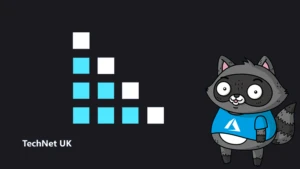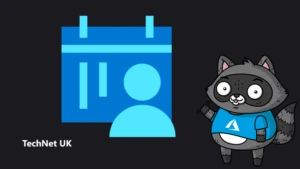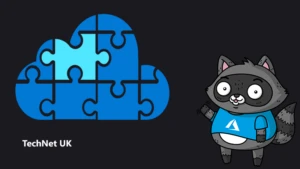
How to get started with Microsoft certifications

Certifications. For a lot of people, they’re a lot like Marmite – you either love them, or you hate them. But they can be really helpful in our professional journeys. I’d like to share my experience with them, along with some thoughts that I’ve gathered on the way, which I hope will be helpful to others too!
My journey with Microsoft technology began in 2008, when I joined a small ISV that was delivering a product based around Dynamics CRM 4.0. Being the support person, I was told that I should look at taking the relevant Microsoft exams. Dutifully, I started studying for them, and took a few. I didn’t pass all of them, but passed enough to be relevant for what I needed to do at the time.
That was really it, for a while. I continued to engage with Microsoft technology in the form of Dynamics CRM (various versions along the way), Office 365 (I remember when it launched!), and various other pieces of technology.
When running my own small MSP (Managed Service Partner), the company whom we purchased licenses through offered us the ability to do a licensing course with exams. That sounded cool, so I went for it (it did help that they put us up in a hotel for 3 days!). I came out of that being officially recognised as a Licensing Specialist Expert, though that didn’t really do much, to tell the truth.
Fast forward a decade or so to 2019. I was attending one of the Dynamics 365 User Group days in London, and Julian Sharp was presenting a session around qualifications. I hadn’t really met Julian before, but had heard really great things, so I signed up for the session.
Julian is an MCT (Microsoft Certified Trainer). There’s a general perception that most people are one or two ‘steps’ away from Julian, across the world. Either he’s trained someone directly, or he’s trained the trainer who’s given the training to people. It’s really quite amusing to see how many people know him!
During the session, he explained some of the various certifications, and challenged us to go book an exam and take it. He also gave us some examples of how best to revise, including breaking the material down into a small manageable chunks.
I decided to take up his challenge, and went ahead and did exactly that. Unfortunately I didn’t pass it, but I didn’t let it phase me either. I rebooked it for a few months later, and got down to some serious studying.
In fact, I also booked two other exams for the same day – I thought that I’d really take this to the next level.
Preparing for exams
Preparation for exams for me usually comprises of starting with the Microsoft Learn path/s that are available. I’ll also talk to other people who have taken the exam, and look for blog posts around it. There are some really great resources out there around the different exams, and I really do appreciate the time that people have taken to share their experiences with the community.
Passing exams (or combinations of exams) can result in shiny badges. By passing the exams that I had, I got a few of them, and it started to get addictive.
Taking exams – the experience
There are generally two ways to take exams. Either you can go to an exam centre, or you can take one remotely (proctored). To memory, I’ve only ever taken one exam in a physical centre (and at the moment, most of them are currently shut anyhow). All of my other exams have been proctored.
To do an exam remotely, it’s necessary to be in a room alone (I lock the door), with nothing around that could be used for reference material. For the duration of the exam, I have a proctor watching and listening to me remotely, through my webcam and microphone.
It’s not for everyone, I’ll freely admit, but I have no problems in taking it like this and have taken all my exams (but one) in this way. True, there can occasionally be technical issues, but usually we manage to get through them, except of course for the time that my internet cut out in the middle!
For Julian’s challenge, I had actually gone ahead and booked a hotel room for the day, to make sure I could get through them in peace and quiet. It ensured that I wasn’t disturbed during the day, which I couldn’t be sure of either at home or in the office.
I sat the first exam, and passed. I had a 30 minute break until the next one started, and took the opportunity for some last minute revision and some fresh air. I then sat the second exam, and passed that. I was feeling quite happy about things so far, as to how the day was going.
Realising that I was on a high, I decided to push myself further. I still had one exam to take, but decided to be even crazier and book a fourth exam that I had been considering taking. Quickly I went online to get this booked in, and then it was onto my third exam.
Thankfully, I passed the last 2 exams as well, and finished up with passing four exams in one day! I haven’t repeated the experience since, but it was an incredible feeling to walk out with them all at the end of the day.
Why certifications are important
I’ve changed roles several times over the last 5 years and having certifications is actually quite important for a number of reasons.
Firstly, the exams have changed from being mostly theory-based to actually being very practical. It’s no longer possible to just read a book or study resources and pass it. Instead, it’s necessary to have in-depth hands-on experience with the systems. Taking (and passing) exams shows that we do know what we’re doing, and have the appropriate knowledge. It’s essentially a verification of our actual abilities, which is what prospective employers want to see.
Secondly, Microsoft has changed how companies become a Microsoft Partner. These now require people within the company to have passed various exams, with their certification profile associated with their employer. This then shows Microsoft that the partners actually have people who can deliver the technology that they’re supposed to be delivering.
As a result, I’ve found that when looking for a new position, being able to show that you have qualifications and certifications can help your profile stand out. Prospective employers do ask recruiters what candidates are experienced in, and this helps back it up and makes us more attractive hires.
Now, exams aren’t the cheapest of things to do. Some people are fortunate and their employers will pay for exams that they take. Other people aren’t as fortunate, and have to pay for exams themselves. I know several people who haven’t taken any exams due to the costs involved around them, and that they’d need to pay the cost out of their own pocket.
Getting started for free
What’s really amazing is that Microsoft now gives attendees at various events a FREE exam voucher. This happened at Ignite in 2019, as well as the Ignite the Tour series. All attendees were given a voucher that could be used across a wide number of exams.
This year with Ignite, Microsoft has launched the ‘Ignite Cloud Skills Challenge’. This gives you several Microsoft Learn tracks, created specifically for Ignite, that people can take. On completion of at least one of them, attendees will get an exam voucher.
This is really amazing, as not only are attendees then able to take an exam, but they are also prompted to carry out direct learning as well at the same time! More information around this can be found here.
Since a year ago, I’ve really been ploughing through more exams, and have taken more than 10 more since then. I’m continuing to do more, and have several booked over the next month or two. Shiny badges are addictive, and I can’t wait to add more to my collection!
I’m also taking the opportunity to write about my exam experiences on my blog, to be able to help others with their exam preparation! It’s really been wonderful to see that they’re able to help others revise and pass exams themselves.




